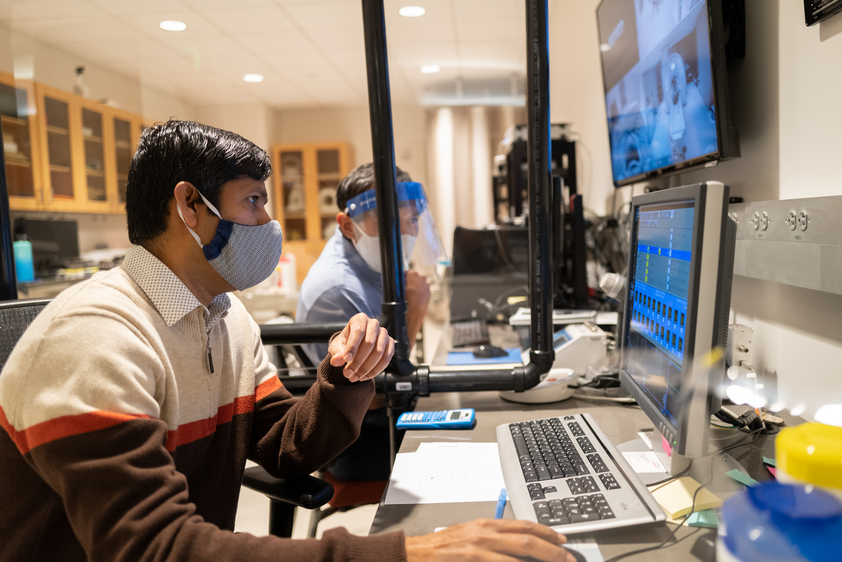
University of Massachusetts research continues to grow in Fiscal Year 2020 as the university positions for post-pandemic recovery. Faculty expertise and strategic planning position the university for continued research growth.
BOSTON – Despite the onset of the coronavirus, the University of Massachusetts conducted a record-breaking $687 million of research in Fiscal Year 2020, according to a report released at today’s meeting of the UMass Board of Trustees Committee on Academic and Student Affairs. The university’s annual research portfolio has increased by 9.2%, or $55 million, since FY16, according to the FY2020 UMass Research & Expenditures Report.
Federally funded research continued to comprise the largest share of the university’s portfolio, with the university attracting $385 million in federal research dollars to Massachusetts in FY20.
In addition to overall research funding, UMass continues to realize long-term growth and achievement in its commercialization enterprise, with licensing income in Fiscal Year 2019 standing at $49.7 million, an increase of 60% over five years. The University of Massachusetts is currently ranked 11th nationally and second in New England among colleges and universities for annual licensing income generated, according to the 2019 Licensing Activity Survey, an annual report on commercialization activities recently released by AUTM.
Since 2014, UMass researchers have filed 1,143 patent applications and 1,222 invention disclosures that have resulted in 397 issued U.S. patents.
“From its earliest days, the University of Massachusetts has been driven by the belief that knowledge should be shared with its students and with the world,” UMass President Marty Meehan said in a video message distributed on social media with the report. “As a public research university, UMass has a special responsibility to make the world better. That is our mission and tradition. UMass is here to answer the call.”
The release of the updated research figures follows a recent series of online summits hosted by the UMass President’s Office which focused on the “grand challenges” facing six important Massachusetts industries. The summits attracted more than 500 participants from industry, academe, and government, including those from organizations like the Massachusetts Business Roundtable, MassBio, Associated Industries of Massachusetts, Massachusetts Competitive Partnership and the New England Council.
Those summits, and the contributions of cross-campus committees of leading UMass researchers and staff, informed a series of reports titled “Next: Frontiers in Applied Science” that outlined the challenges and opportunities in the six research fields. The reports are intended to identify key opportunities for UMass research engagement, especially in areas that are critical to Massachusetts and its post-pandemic economic recovery.
The reports cover the following research areas:
- Applied Life Sciences
- Precision Health
- Advanced Manufacturing
- Artificial Intelligence, Robotics and Data Science
- Sustainability and Climate Resiliency
- Aerospace, Defense, Undersea Technologies and Remote Sensing
“Last summer, in the midst of the COVID crisis, we began to brainstorm with the campus research officers about the next generation of discoveries and commercialization technologies in the applied sciences,” said Katherine Newman, the UMass system chancellor for academic programs and senior vice president for economic development. “We wanted to think through ‘What’s next?’ and how we are prepared to lead in the laboratories and field sites to collaborate with industry, to develop new start-up companies, and to train the next generation.”
The university is also seeing indicators that research and development will continue to grow at UMass throughout Fiscal Year 2021. In November, UMass Medical School announced that funding from the National Institutes of Health had surged by 78 percent for the first quarter of FY21, and grants and contracts from all funding sources increased by nearly 50 percent.
The University of Massachusetts is currently the third-largest research university in Massachusetts and the fourth largest in New England, behind only Harvard, MIT and Yale.
